“Men and women exist. Occasionally we even like each other. We exist because of these two simple truths.”
These are the opening lines of a powerful new book that dives into the crisis in contemporary heterosexuality. It’s been called a feminist defence of masculinity, and it is a clear-headed and compassionate look at where we’ve gone wrong.
Nina Power is a British writer, philosopher, and fellow Substacker. She’s also a senior editor at the new American journal of radical politics, Compact Magazine. Nina Power’s latest book is What Do Men Want? Masculinity and Its Discontents. She joins me today for a conversation about how we think and talk about men — and how we might begin to heal the rift between the sexes.
TH: Nina, welcome to Lean Out.
NP: Thank you.
TH: So nice to have you with us today. This book is so interesting. I want to start with the opening lines of the book: “Men and women exist. Occasionally we even like each other. We exist because of these two simple truths.” To tackle this topic of relationships between heterosexual men and women, you have to commit leftist heresy — you have to acknowledge biology. Why is it important to do so?
NP: I think fundamentally it doesn’t make sense to write a book about men and women unless there is some grounding in reality. And I take my cue not only from empirical reality, but also from the history of humanity, and the way in which we’ve discussed these things for, at this point, thousands of years. So if that makes me reactionary, so be it.
But, in all seriousness, it would have been impossible to write a book about what I call heterosociology — so, that obviously includes heterosexuality, but also different kinds of relationships between men and women in a broader sense — it would have been impossible to pay lip service to a certain kind of discourse that would have tried to disavow the reality of sexual difference. Apart from anything else, it would have made the book read horribly.
But again, more seriously, I fundamentally think that men and women do exist, and I do think that sexual difference is real and important. It doesn’t mean we can’t talk about how we live together, in terms of how people express themselves and so on. But I’m committed to sexual difference. I think the difference is, in fact, very important and very beautiful, and quite meaningful in a variety of different situations. And it would be a terrible error, in multiple ways, to imagine that we can dispense with it.
TH: I want to pull a few threads. Here’s another quote: “It is no longer our relation to the means of production that matters — whether we are exploited for our labour — but rather how we identify, and whether our identity is a good one (and therefore uncriticizable) or a bad one (and therefore open to being blamed). Men as a class today most definitely fall in the latter category.” How so?
NP: Obviously the first part of that is slightly sarcastic. I think that material reality involves exploitation; this is how capitalism proceeds. I’ve been looking at some of the early socialist feminist writers, and it’s obvious that even where there are differences and difficulties between men and women, the fundamental form of solidarity is between men and women — as working men and women. We could say that contemporary consumer capitalism promotes this image of identity as if it trumps everything else. It’s a categorical, taxonomic existence.
There’s this idea that I talk about in the book of a zero-sum game. This idea that if some group advances somehow, socially or politically or economically, another group must be losing out. I think this logic of scarcity is very pernicious and very dangerous. I think it’s a question of people rising together and falling together; so it’s old-school leftist in that sense.
In the logic of this lack, it’s very obvious that some quote-unquote oppressed groups are being privileged over others. Men have been, for quite a few years now, sort of demonized as a class. As if they’re responsible for all the world’s ills. I think both socially and politically, this is quite detrimental for any kind of realistic analysis.
TH: You write that to be a man right now is to suffer, and you go through some of the material conditions experienced by men. Can you recount a few here, to set this up?
NP: One of the things I wanted to be clear to write about was the male suicide rate. It’s very high in the Western world. I myself have had three male friends who’ve committed suicide. I think it says something terrible about our culture in general. We don’t want to live in a world, if we think about it for more than half a second, in which any group of people are feeling so meaningless and so bad about their place in the universe that they contemplate, let alone commit, suicide. I take it as a very salutary lesson — to ask questions about why some men feel this lack of a social role. And what does it mean to have this cosmic meaninglessness?
I also think it’s important to note that it’s men who die in war, overwhelmingly. It’s men who die in dangerous jobs, and so on. And when we’re talking about equality, often a very superficial lip service is paid to the idea of people competing for the top jobs, without taking into consideration the whole plethora of work and employment.
Also, men tend to dominate homelessness, drug use, drug abuse. I mention the opioid crisis in America, where, again, it’s overwhelmingly men that suffer. It’s not to say that women don’t suffer too. Of course they do. But I think it’s just to focus for a second on those issues ... Just by virtue of being a man doesn’t mean that you are in possession of any form of power necessarily.
TH: The ways of talking about power have become so simplistic.
NP: Exactly.
TH: I want to get into, in a moment, the manosphere, which you investigate. But first, on this idea of suffering and what we do about it, there’s another point that stands out to me from the book — this idea that our culture believes punishing men for women’s suffering will somehow remedy male violence. Can you unpack that for us?
NP: I think we live in an age that celebrates victimhood, often in ways that I think are detrimental to people who have suffered from trauma, who have experienced pain and suffering. Many of whom don’t want to be victims. You know, the position of the victim isn’t inherently a good one. In fact, victims often are subject to feelings of revenge and vengeance that are not necessarily helpful to the social whole.
It doesn’t mean that we shouldn’t seek justice for harms done, and recognize when harm is done. But it can’t be the grounding character of our culture. I suppose it’s, again, to get away from this idea of the zero-sum game. It’s to say that everybody suffers. That life, in a sense, is suffering. [Our] culture seems to say that when men suffer, they don’t really suffer.
TH: And that punishing men will solve the question of male violence, which is a real question that we need to grapple with.
NP: Right. Everybody wants to solve this problem. Men are disproportionately responsible for interpersonal violence, usually against each other, or themselves, and against women to a lesser degree. It’s a very small number of men who commit these violent acts …
I propose rather than to blame all men, to get men to think of themselves as a class and to take responsibility for individual men when they are acting out. So, a recognition of a shared existence as men. Rather than to think of themselves first and foremost as individuals, to think of themselves as part of a class. And that men might start to look bad if certain of them are acting out. It takes away responsibility from the state and moves towards a social existence. We actually do live in a relational, communal way, despite atomization. Despite these faceless technocratic bureaucracies. And that we can pay attention when people around us are not in a good place, or need help and or support.
I think that preemptively blaming men for all violence runs the risk of a self-fulfilling prophecy. If you say that men can’t be good, then they might start to think, “Well, why should I bother trying at all?”
I have an almost Christian humanist message, which is that everybody can be slightly better. We have to admit that we are flawed and we’re all capable of harm. We all hurt each other, accidentally a lot of the time. We all make mistakes. I think we need to have a little bit more forgiveness and flexibility — which are in short supply in our culture — for everyone’s sake. Whether people have been hurt, or whether they are doing the hurting, or both. It’s an attempt to be balanced and reasonable, which is itself faintly controversial for reasons that escape me.
This is an edited and condensed excerpt. For the full interview, download the podcast.

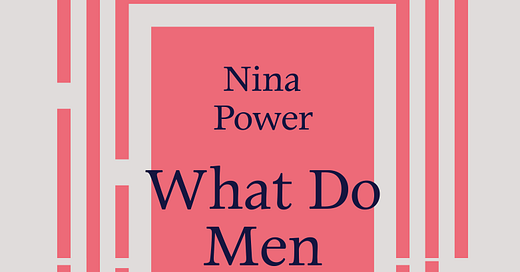

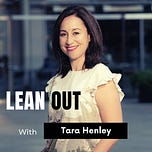




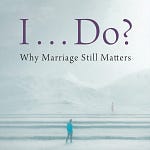

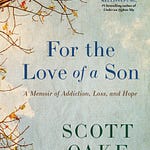
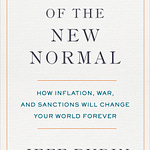



Share this post